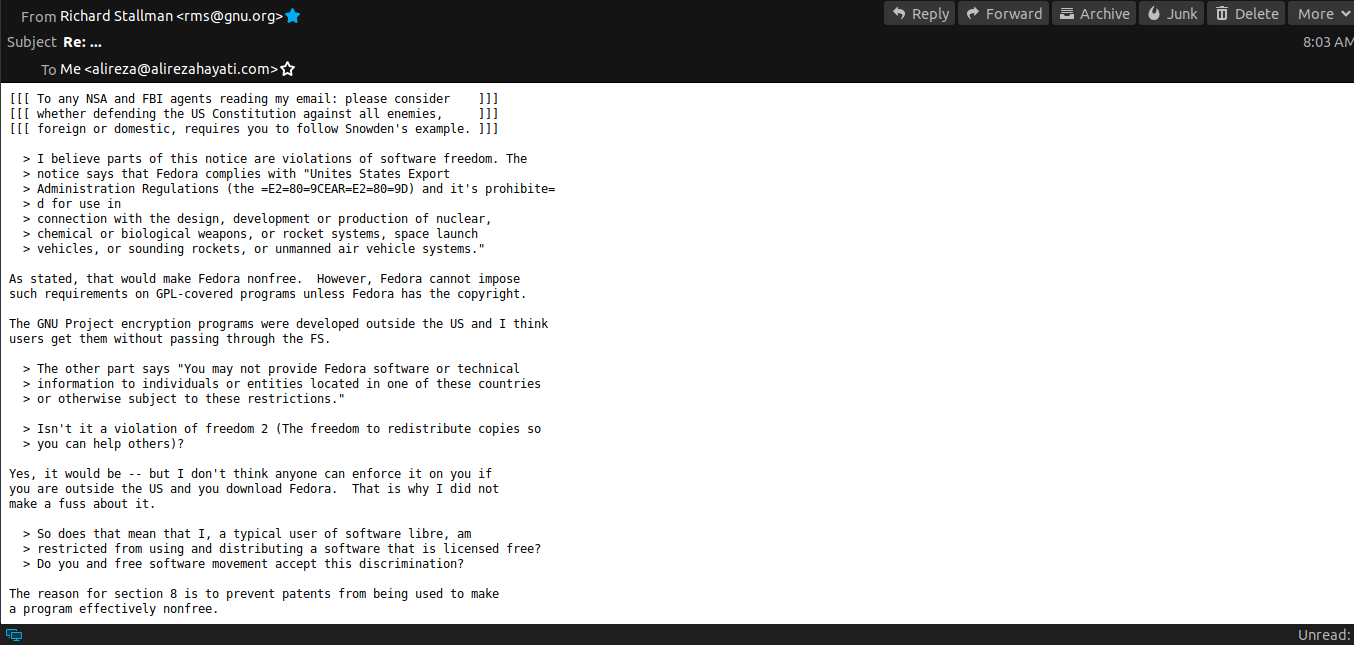I only use free software. There’s not a single proprietary software on my computers, well except for some nonfree blobs on the Linux kernel on my phone which runs LineageOS. The thing is that some people consider me a free software or [GNU+]Linux extremist.
Always and only using free software is not being an extremist. First of all, free software users and advocates don’t use free software to oppose other software, we use free software because it respects us and gives us freedoms.
Using free software puts your computing in your hand so it’s you that controls the computer. Using proprietary software puts your computer in control of you and your computing.
Secondly, there’s always a free software to use instead of a nonfree software. There’s a lot of freedom respecting programs to use instead of proprietary software to satisfy your computing needs.
I always use free software because it’s respecting me. Imagine a person who only has friends who respect that person. Is it being an extremist? Of course not. People won’t call that person an extremist because it has respect for itself.
Using free software and privacy-respecting services is the same. We’re not extremists because we respect ourselves. Instead of nonfree (free as in freedom) and privacy-violating services, we respect ourselves and use free (as in freedom) and privacy-respecting services.
I agree that only using free software has its own problems. For example, completely libre operating systems (such as PureOS GNU+Linux distro) may not be compatible with your hardware or not many people may use Mastodon instead of Twitter and Facebook but for us, at least, it doesn’t matter because we respect ourselves more than we feel need for these services.
I may leave the whole digital life one day but as long as I’m living this digital life, I’m living it with respect and freedom for myself and I believe you should too.

